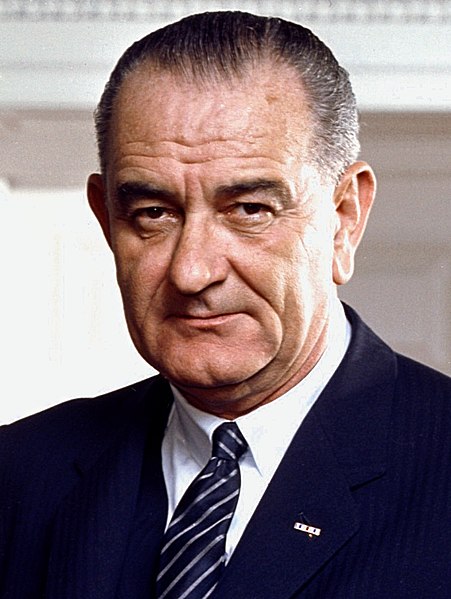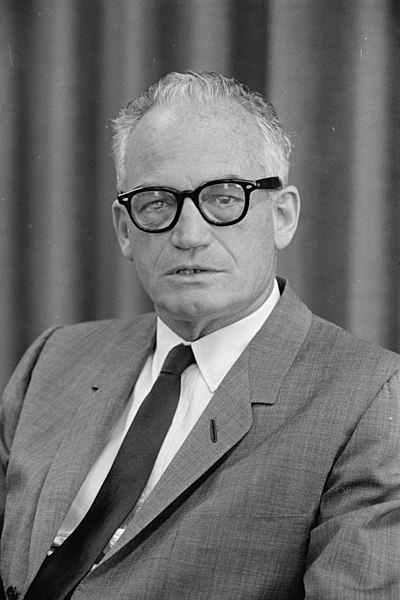"Daisy", sometimes referred to as "Daisy Girl" or "Peace, Little Girl", is an American political advertisement that aired on television as part of Lyndon B. Johnson's 1964 presidential campaign. Though aired only once, it is considered one of the most important factors in Johnson's landslide victory over the Republican Party's candidate, Barry Goldwater, and a turning point in political and advertising history. A partnership between the Doyle Dane Bernbach agency and Tony Schwartz, the "Daisy" advertisement was designed to broadcast Johnson's anti-war and anti-nuclear positions. Goldwater was against the Nuclear Test Ban Treaty and suggested the use of nuclear weapons in the Vietnam War, if necessary. The Johnson campaign used Goldwater's speeches to imply he would wage a nuclear war.
Lyndon B. Johnson's portrait, taken in December 1963
Barry Goldwater in September 1962
In politics, campaign advertising is propaganda through the media to influence a political debate and, ultimately, Voting. Political consultants and political campaign staff design these ads. Many countries restrict the use of broadcast media to broadcast political messages. In the European Union, many countries do not permit paid-for TV or radio advertising for fear that wealthy groups will gain control of airtime, making fair play impossible and distorting the political debate.
Candidate placards in New Hampshire, 2013
Political advertising truck in India, 2014
Advert for the Liberal Party of Australia, 2010
President Reagan giving Campaign speech in Austin, Texas, 1984






